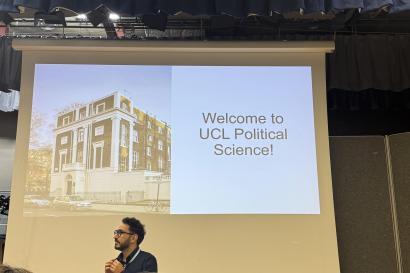Even being a marine science major at my home university, I’ve never had the opportunity to scuba dive with a class before. Here, I’ve already had the opportunity to go on three dives with my classes already with more to come. Through these experiences, I’ve learned to dive scientifically rather than simply recreationally. Instead of of simply observing the general splendor of the underwater world, we set an objective beforehand and keep this in mind throughout the dive. While some might think this compromises the enjoyment of the dive, I’ve come to the opposite conclusion. I've found that it forces me to think critically about what I’m seeing and with each dive I understand a bit more about the underwater world I'm visiting. This past Friday our class went diving again at Kicker Rock (or Leon Dormido as the locals would say), and after diving through the channel to see the many sharks that congregate there, we did a wall dive to work on observing the more communities that inhabit the wall. We started at 20m depth and then worked our way up 5m at a time, noting the zonation patterns as we went. When looking closely, we were able to see sea stars, sea fans, urchins, lobsters, corals and all sorts of other life that might have other wise gone unoticed.
The following Friday, our class went to Punta Pitt, one of the northernmost parts of the island. This is about an hour and a half boat ride away from the university, and as soon as we arrived it was clear that it was a very different environment. The water was turquoise blue, and the sand glittered in the sunlight (due to unusually high quantities of certain nutrients). Though here the majority of the class was only snorkeling, another student and I had the opportunity to go on an additional scuba dive to retrieve temperature loggers our Professor had placed there as part of a study monitoring coral health. Because these loggers were hidden underneath the corals themselves, we were only able to locate one logger. When the logger was located, it was removed to be analyzed back in the lab, and another was put in its place. After this, we snorkeled around and photographed corals so that we could determine their size using a program called ImageJ. This made us practice our free diving skills, but also meant we got to see lots of other cool things like white tip reef sharks and eagle rays. Sadly we found that many of the corals were experiencing slight bleaching. This however is supposedly a result of unusually cold waters, a side effect of the recent La Niña. Because the corals we observed were only partially bleached, and the event was temporary, it’s likely that they will make a full recovery.
In the same way that I've realized that focusing on the details during a dive makes it more enjoyable rather than the other way around, I've realized that staying in the same place for so long during my study abroad has added to the authenticity of my experience. While hoping countries in Europe or South East Asia certainly comes with its share of valuable lessons, being on a small and somewhat isolated island has made me truly live here rather than dissapearing off to another country every weekend. While this is a slightly less romanticized version of study abroad, it has allowed me to experience what daily life is like here. The cashier at the local bakery (with $0.25 rolls) knows my name, I've gotten used to my walk to school taking a little longer on days where a lazy sea lion decides to block the sidewalk, and I've been able to let go of the constant need to stay busy that often results in a lot of unneccesary stress. I've also gotten to do something I've always wanted; to live right next to the ocean. As much as there is certainly value in learning in a classroom, being in and around the ocean has been the fastest and best way to learn more about it. Growing up in St. Louis, I always envied those who lived near the ocean simply for how much more they knew about it. Studying abroad in the Galápagos Islands has finally given me the opportunity to live with the ocean in my backyard and get to know it first hand.

Peyton Moore
My name is Peyton, and I could not be more excited to study abroad. I love all things adventure, including hiking, surfing and skiing whenever I get the chance. I have had the travel bug ever since I spent a summer in Spain when I was in high school. I fell in love with the people, places and culture I encountered, and have not stopped chasing that feeling ever since.








